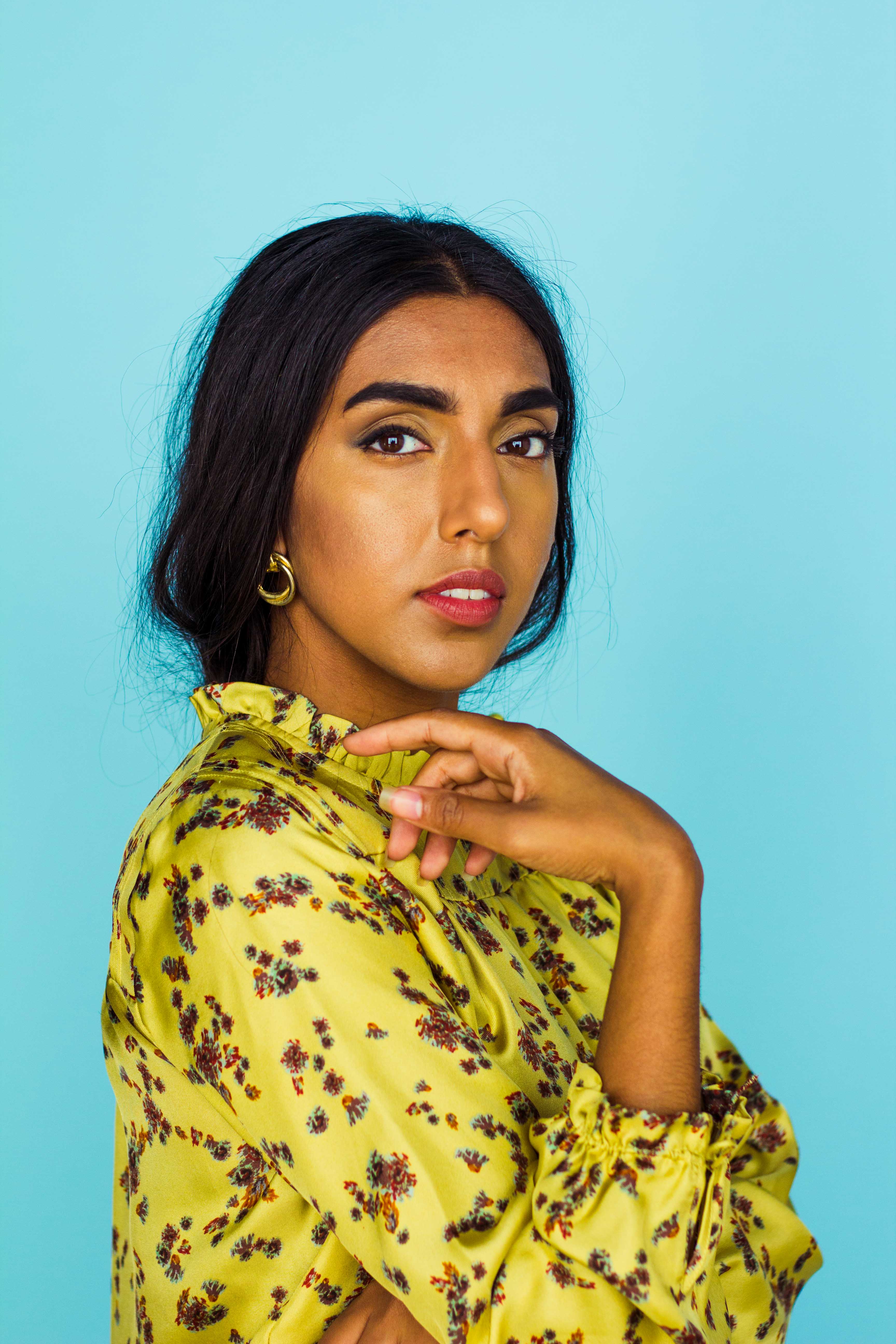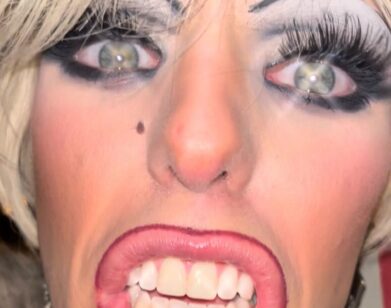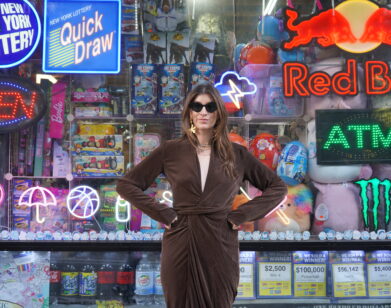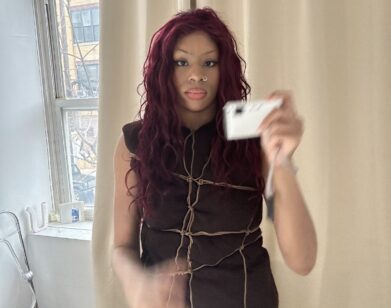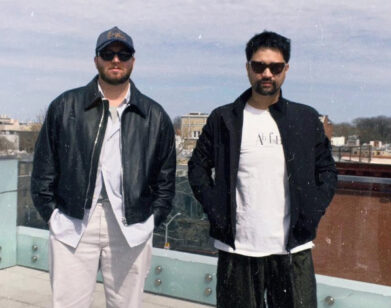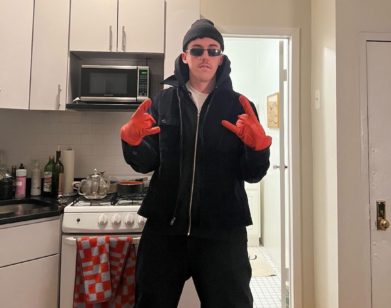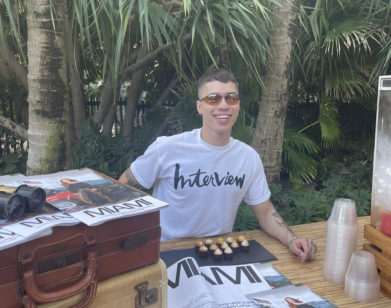How Rupi Kaur used Instagram to transform poetry
Rupi Kaur is the modern day poet. The 24-year-old internet star is known for her short poetry and prose showcased on both Tumblr and Instagram. Kaur’s poetry is written in a minimalistic style with many of her poems being only a few lines long—a style she admired from her younger days with her family performing Sikh traditions with holy texts written in poetic verse.
The Toronto-based writer began sharing her poetry on Tumblr in her teenage years with friends, family and a small community of South Asian women. The poems—which touch on love and death and female empowerment with searing honesty—began to garner a cult following. She began to post them to Instagram in 2013, and now has over a million followers. In 2014, she self-published her first book Milk and Honey; it became a New York Times bestseller and has been published in over 30 languages.
This past summer, three years after the release of her first book, Kaur sat down with Interview to discuss the impact of Milk and Honey, and her new book The Sun and Her Flowers.
REBECCA SZKUTAK: How were your first introduced to poetry?
RUPI KAUR: I got introduced to poetry through mostly my dad, my family. Because a Sikh tradition is based off of poetry. All the holy texts and scriptures, it’s all written in poetic verse. And so for about 10 years, I practiced classical Indian music. I would perform on stage with a harmonium—and it is interesting because it’s very similar to the style of my poetry that you see today—a lot of it is 4-line couplets, and so the reason that I love that is because we could sit and we could unpack those four lines or just a single line for hours, hours, hours and hours and I thought that was so lovely how you could almost contain an entire universe within five words.I went from performing on musical instruments, to performing longer verse just on stage with a mic, and then I also added music to that, and then eventually I ended up kind of on what you see today on Instagram or Tumblr. I’d perform my poem and then I would put it away and I would never share it again. And then next year I would write something else and then perform it once and never share it again. And then my friend said “You know I think more people need to see this,”so I began to make some videos but when you have zero budget it gets really difficult. And then I was like “Ok what if I shared little chunks? And I just posted the text online?”
SZKUTAK: Why Tumblr?
KAUR: I was using Tumblr for many years for my visual artwork, and so I had been blogging under an anonymous name already, and so I had some sort of a community within south Asian women. I wasn’t active on Instagram, I wasn’t really active on Facebook or that sort of thing, so Tumblr felt really natural. It seemed like the place where people were exploring, and experimenting, and sharing their art work. So I started a new blog. But it’s the reason I chose to go to Instagram, which makes no sense to me still because I remember when I first thought about it I was like “This is silly Instagram is a place where you go to see hot photos of girls and cute puppies and clothes whatever and why would somebody want to see an image of words that they have to read why would someone want to go on Instagram and do any emotional labor or work?”
SZKUTAK: How was it when you first started sharing these poems with your name attached to them?
KAUR: My initial following was around 100 people and it was close family and friends so it was a little bit weird because I think it always is a little bit right? Even though your family’s the people that know you the most, they are also not [laughs]. In the beginning, I would say 100 percent of my work was about violence, sexual abuse, trauma because I had this desire to unpack so many deeper emotions and issues that I’d seen affecting me and so many women around me, so that was a little bit weird and made me really insecure. But then I just came to point where it was like “Well you know eh.”
SZKUTAK: How is it writing about those kind of topics?
KAUR: It is very cathartic. I mean, you can never contain everything in a single poem, but when you get to a point where your own poetry kind of kicks you in the stomach by the time you read the last line, it’s a really good feeling. It’s difficult to get there, so it feels rewarding.
SZKUTAK: Tell me a little bit about the transition from the online poetry to Milk and Honey?
KAUR: I was doing shows and traveling and all sorts of things and every time I’d do a show people would always come up to me afterwards and be like “Oh hey are you selling your book here? What’s going on? Can we pick up a copy?” and I would always be like “Well there is no book.” I would kind of just do this and carry on but then that kind of sparked an idea in my head because I was like “Why isn’t there a book? And why can’t I put one together?” And so I was in a creative writing course at school at the time and I went and asked my professor for some advice. She was like “I don’t think you should self-publish, because it’s kind of surpassing the gate-keepers in this literary community, it’s not a good look. So what you want to do is perhaps take your collection, and pick a few pieces out of it and start submitting to anthologies, and journals, and literary magazines.” And so that’s what I did, I was submitting my pieces to Canadian lit magazines and stuff like that and I knew I was going to face a lot of rejection naturally right? I wasn’t disappointed it was more so just getting very redundant, and it came to a point where I was like “Of course they are going to reject this.” Reading five pieces out of Milk and Honey is…it doesn’t give you the full picture. I felt what I was doing was cheating on the body of work. But I was like no this is an entire body and these pieces need to stay together because even though it’s 180 poems the entire book to me is one long poem front cover to back cover. So then I was like “Ok whatever, I’m just going to self-publish.” I did the self-publishing and because it went well within probably six to nine months I got an email from A and P [Andrew McMeel publishing] saying they wanted to bring the book worldwide.
SZKUTAK: Transitioning into the second book, so when did you decide you were going to start working on the second book?
KAUR: The day that the first one came out [laughs]…it’s probably unhealthy, but I always need something to do. I’m just one of those people where free time is just not good for me because I overthink everything and it’s just a deep, dark hole right? And so the day that the first one came out, in November 2014, I was like “Oh idea,” and then the title kind of came to me by itself. I started designing the cover. I continued to write, but between 2014 and now, there was a long period I wasn’t writing, because when Milk and Honey really hit off I was touring so much and I kind of lost that relationship with my art, and because I wasn’t present enough to practice it everyday. But I’ve been writing since then, a heavy chunk of this year and last year has been focused on putting it all together, and it was months of waking up everyday and writing until I go to sleep.
SZKUTAK: Do you find you usually work on things like that?
KAUR: It’s hard to compare because it was really, really, really challenging to write the second book, but I realized after talking to other authors and folks in the industry that that’s a very normal experience. I was never really thinking about writing a book until that collection was really done and then I was like “Ok let me just put this together now.” And then going into the second one was starting at zero. And being like “Ok now you have to write a book and you also have to live up to everything that the first one accomplished, you have to make sure it sells this much, you have to make sure it’s on the New York Times list for this many weeks, da, da, da, da.” And then you have your publisher, your family, your friends, and you want to make everybody happy and so when you’re walking into that project with that much pressure that’s really difficult, but having completed it, I know that the third one and fourth one will be so much easier because I realize I conquered this.
SZKUTAK: How do you feel this new book has grown from Milk and Honey?
KAUR: My skill level has increased a lot. The writing in Milk and Honey, I did a lot of those poems when I was 18, 19, 20. And so these are poems that I started to write when I was 22, 23, 24 and so that’s years, and years, and years of practice. So I realize that they have the ability to go deeper, the metaphors are stronger, many of the poems still maintain a certain whimsical kind of tone that Milk and Honey has but when you read it you’ll see that the themes have expanded and the themes have grown for me personally. I never thought that I would write about family and now there’s an entire chapter in this book about family, and I never had the tools to do that before. I never thought I’d write poems about death, or these broad-like spectrum poems but I was able to get to a place where they kind of, sort of just came naturally.
SZKUTAK: How was writing about those different topics? I read the poem in the the manuscript about yelling at your daughter because you love her teaches her that men can yell at her and that’s a sign of love. And that poem in particular I really liked. How is it writing about your family?
KAUR: When I was writing those poems, it was so fluid that there wasn’t even a desire to reflect and ask myself “Ok my family’s going to read this,” because they were written long before the book was around and then it happened and it was like “Oh ok it’s fine.” But I think what was challenging was putting it out there and living with the fact that everybody who reads this is gonna think that this is 100 percent autobiographical, and every piece is about me, and that everything in this book has happened to me which it hasn’t.
SZKUTAK: How do you find these topics that aren’t necessarily autobiographical, how do they come to you as an inspiration to write?
KAUR: They’re things that if I’m not experiencing them firsthand I’m usually a bystander to such a situation. Seeing other people experience that, whether it be my sisters, or my friends, my mom, grandmother, extended family, that’s usually how they kind of come to me.
SZKUTAK: Do you ever read these comments that people make about your work?
KAUR: No. Two years ago yes, but since then I’ve very much limited my social media use because it can become this giant thing where you’re always waiting for the next comment. In trying to write the second book, and trying to maintain honesty with myself I didn’t want that to be tainted by other people’s perception of my work. Because you can read something and people might be like “Ok, love your poems about heartache, you should write about those more and less about such and such,” and so when I read those types of comments two years ago I would actually sit there and be like “Oh my god yeah, that person’s probably right.” But then it started feeling like I was cheating on myself, and so since then I always want to write with a blank canvas.
SZKUTAK: What’s next?
KAUR: Oh my god [laughs] I don’t know. I kind of wanted to write three collections of poetry, and so maybe that will happen, at the same time I’m experimenting and working on so much more, you know I’ve written a couple chapters of fiction, I’ve written a couple chapters of memoir, I’ve written short stories, but nothing has really…none of those projects have really stood out and been like “I’m the next one.” So I’m also working on film and photography and whatever kind of comes naturally. I gave the second book a lot of time, you know, there is a three-year gap so I feel I still have enough time to figure it out.
THE SUN AND HER FLOWERS IS AVAILABLE NOW.

